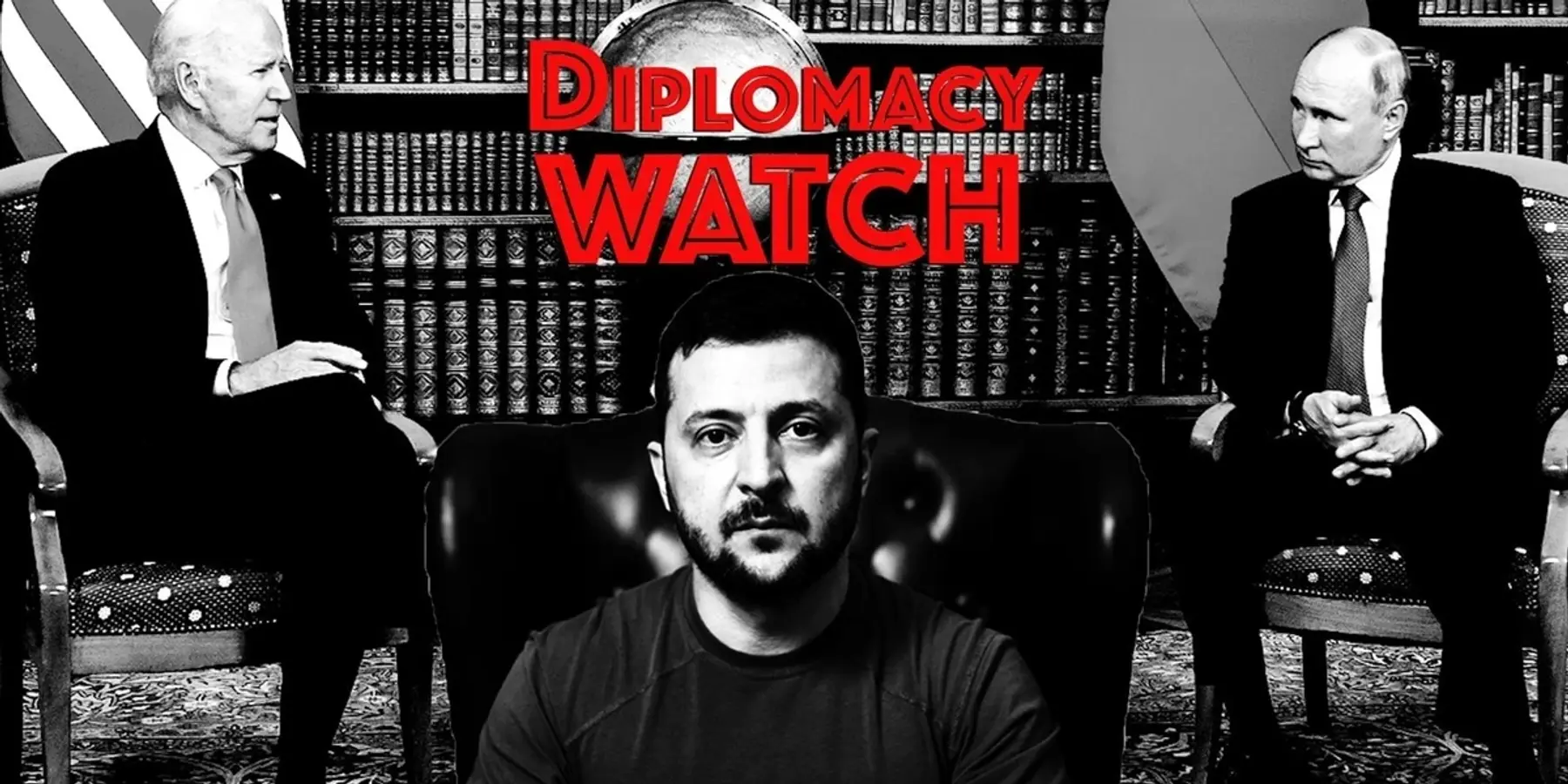The Biden administration is putting together a final Ukraine aid package — about $500 million in weapons assistance — as announced in Defense Secretary Lloyd Austin’s final meeting with the Ukraine Defense Contact Group, which coordinates weapons support to Ukraine.
The capabilities in the announcement include small arms and ammunition, communications equipment, AIM-7, RIM-7, and AIM-9M missiles, and F-16 air support.
“We all have a stake in ensuring that autocrats cannot place their imperial ambitions ahead of the bedrock rights of free and sovereign peoples,” Defense Secretary Austin remarked to the Ukraine Defense Contact Group before announcing the aid. “Ukraine is waging a just war of self-defense. And it is one of the great causes of our time.”
The Defense Contact Group was formed by Austin; its future remains unclear as administrations prepare to change hands.
Indeed, incoming President Donald Trump has increasingly critiqued Biden's Ukraine strategy. In a news conference from Mar-a-Lago earlier this week, the president-elect said that the Biden administration’s talk of Ukraine’s possible NATO ascension played a role in Russia’s decision to invade Ukraine.
"A big part of the problem is, Russia — for many, many years, long before Putin — said, 'You could never have NATO involved with Ukraine.' Now, they've said that. That's been, like, written in stone," Trump said.
"And somewhere along the line Biden said, 'No. [Ukraine] should be able to join NATO.' Well, then Russia has somebody right on their doorstep, and I could understand their feelings about that."
Trump’s comments about Russia’s invasion rationale follow other critical remarks regarding war. In particular, Trump recently emphasized there had to be a “deal” on Ukraine, as people are “dying at levels nobody has ever seen.” He had also said in his 2024 Person of the Year Interview With TIME that “the number of people dying [in the Ukraine war is] not sustainable…It’s really an advantage to both sides to get this thing done.”
Trump's pick for Ukraine envoy Keith Kellogg, meanwhile, has postponed a trip to Ukraine, originally set for early this month, until sometime after Trump’s inauguration. According to Newsweek, reasons for the postponement have not been made public, and a new trip date has yet to be determined.
In other Ukraine war news this week:
— Ukraine launched a second Kursk offensive this week, according to ABC News. "We continue to maintain a buffer zone on Russian territory, actively destroying Russian military potential there," Zelensky said about the offensive. Ukraine also hit a Russian air force oil depot in Engles, in Russia’s Saratov territory, hundreds of miles within the country’s borders on Wednesday, where a state of emergency has been declared in response.
— Russia says it’s captured the Ukrainian town of Kurakhove; Ukrainian forces say the city is still being fought over, according to AFP. Russia also bombed Ukrainian city Zaporizhzhia on Wednesday in an attack injuring 100 and killing 13.
— The Ukrainian Ministry of Foreign Affairs declared on X that Ukraine could replace Hungary’s role in NATO or the EU “if Hungary chooses to vacate it in favor of membership in the CIS or CSTO.” The Ukrainian MFA’s tongue-in-cheek statement, showcasing growing tensions between Ukraine and Hungary, was made in an X thread accusing Hungary’s leadership of “manipulative statements” about Ukraine’s recent decision to end gas transits from Russia to Europe. Namely, Hungarian FM Péter Szijjártó had threatened to block Ukrainian EU ascension over the gas transit halt, which he said could hurt Europe’s energy security.
"A country that signs an Association Agreement with the EU or aspires to become an EU member must contribute to the EU's energy security by providing transit routes. Therefore, closing gas or oil routes is unacceptable and contradicts the expectations associated with EU integration,” FM Péter Szijjártó said.
















